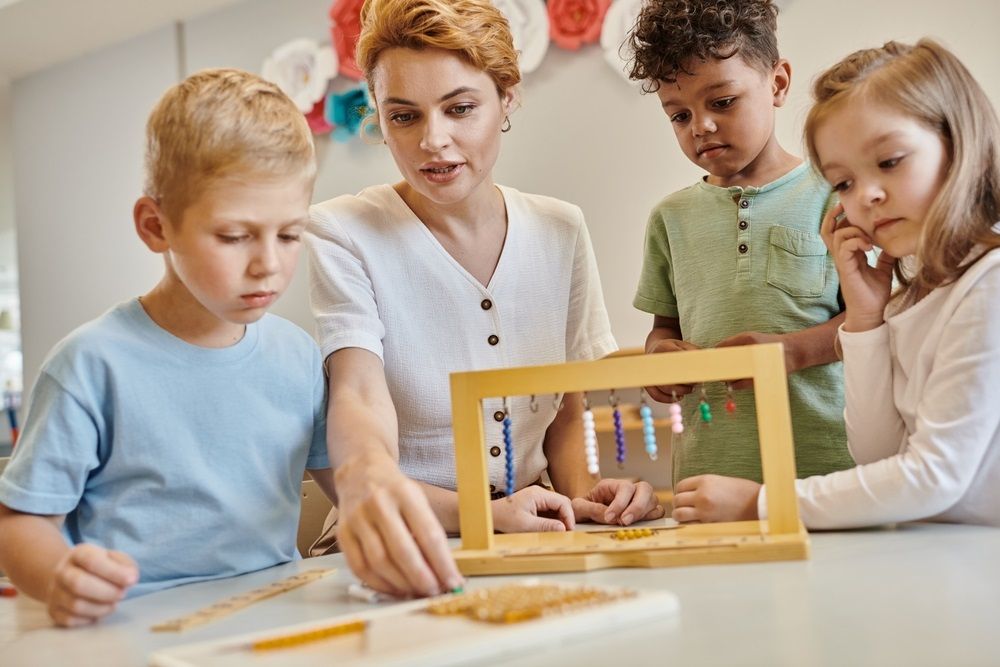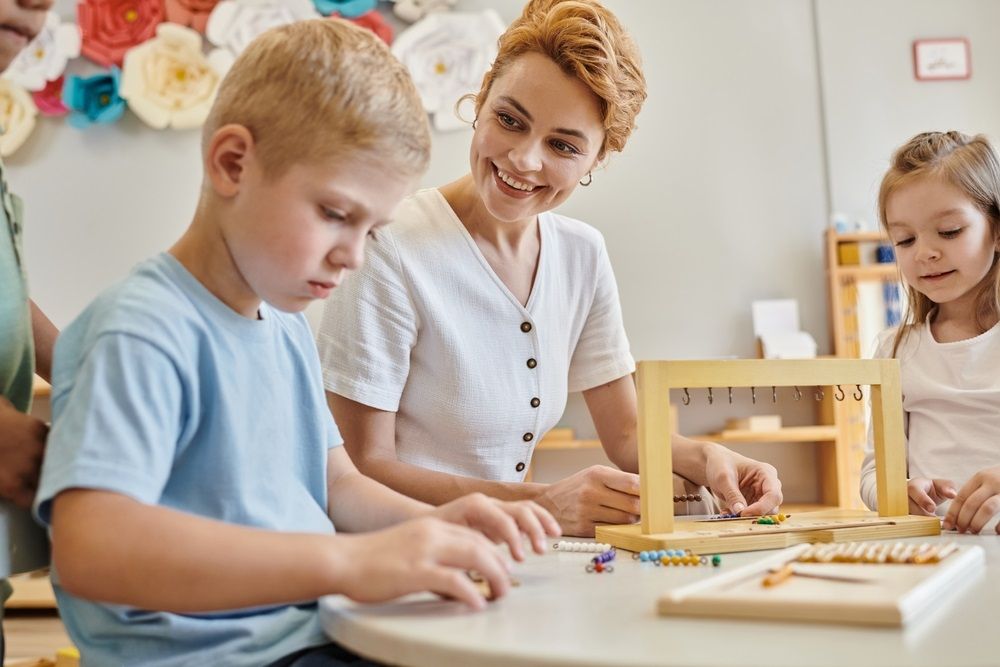
In the realm of childhood education, play is more than just fun and games; it’s a powerful tool for learning and growth. Play based learning activities for children aged 3 to 10 offer a dynamic way to cultivate their minds while having a blast. This comprehensive guide’ll delve into this captivating world, unveiling a treasure trove of play-based activities, insights, and FAQs.
Contents
- 1 The Magic of Play
- 2 The Benefits of Play-Based Learning
- 3 Setting the Stage
- 4 Playful Activities for Toddlers (Aged 3-5)
- 5 Play-Based Learning for Elementary Kids (Aged 6-10)
- 6 Parental Involvement
- 7 FAQs
- 7.1 How do play-based activities benefit my child's education?
- 7.2 Can I incorporate play-based learning into homeschooling?
- 7.3 Are there online resources for play-based learning?
- 7.4 What if my child doesn't seem interested in play-based learning?
- 7.5 Is it possible for children of different age groups to play together?
- 7.6 Are there any downsides to play-based learning?
- 8 Conclusion
The Magic of Play
Play isn’t merely a pastime; it’s a transformative educational experience. Children develop essential skills such as problem-solving, creativity, and emotional intelligence through play. By infusing learning into playtime, we can make education effective and enjoyable.
When we talk about the magic of play, we are referring to the innate ability of children to learn, grow, and discover through the act of playing. It’s not a coincidence that play is often called a child’s “work” because it’s how they explore the world around them and make sense of it. Whether pretending to be a superhero, building a tower with blocks, or solving a puzzle, every play activity contributes to their development somehow.
The Benefits of Play-Based Learning
– Enhanced Creativity: Play stimulates imagination, allowing children to think outside the box.
– Improved Social Skills: Cooperative play fosters teamwork and empathy.
– Better Cognitive Development: Activities engage the brain, boosting cognitive growth.
– Holistic Learning: Play-based activities cover various subjects simultaneously.

The benefits of play-based learning are multifaceted. Enhanced creativity is one of the standout advantages. When children engage in imaginative play, they create scenarios, stories, and characters, boosting their creativity and encouraging them to explore different perspectives and solutions.
Additionally, play-based learning offers a natural setting for improving social skills. Whether playing make-believe games with friends or collaborating on a building project, children learn how to share, communicate, and resolve conflicts, all crucial skills for building relationships throughout life.
Cognitive development gets a significant boost from play-based activities, too. From solving puzzles to experimenting with building materials, these activities challenge children’s problem-solving abilities, critical thinking skills, and spatial awareness. It’s like giving their brains a daily workout.
Furthermore, the holistic nature of play-based learning means that children can simultaneously explore various subjects. For example, a child playing with building blocks isn’t just developing fine motor skills but also learning about geometry, balance, and cause-and-effect relationships.
Setting the Stage
Establishing the right environment is crucial to maximize the benefits of play-based learning. This includes ample space, diverse materials, and a supportive atmosphere.
Imagine a play space that is well-organized, inviting, and filled with a variety of materials that spark curiosity. This is the ideal setting for play-based learning. It should be a place where children feel free to explore, experiment, and take risks without fear of judgment. Safety is paramount, so ensure that the materials are age-appropriate and minimize potential hazards.
Space is another critical element. Children need room to move, create, and engage in both individual and group play. If possible, designate specific areas for different types of activities, such as an arts and crafts corner, a building area, and a cozy reading nook. This segmentation helps children transition between different play experiences smoothly.
In summary, setting the stage for play-based learning involves creating a nurturing environment where children can freely express themselves, learn through exploration, and feel safe and supported in their endeavors.
Playful Activities for Toddlers (Aged 3-5)
– Storytime Adventures: Encourage storytelling to boost language skills.
– Sensory Exploration: Engage in sensory play with sand, water, and playdough.
– Building Blocks: Develop fine motor skills and creativity with building blocks.
Toddlers aged 3 to 5 are at a crucial stage of development, and play-based activities can set the stage for a lifetime of learning. Storytime adventures, for instance, are an excellent way to boost language skills. Encourage your child to create stories or act out their favorite tales using props and costumes. This not only enhances their vocabulary but also fosters their creativity and imagination.
Sensory exploration is another fantastic avenue for learning. Activities involving sand, water, or playdough engage the senses, helping children learn about texture, temperature, and cause and effect. Sensory play also encourages scientific inquiry as children explore the properties of materials hands-on.
Building blocks are a timeless favorite for toddlers, serving as a powerhouse for skill development. While stacking blocks, children refine their fine motor skills and hand-eye coordination. They also learn about balance and spatial relationships, building a foundation for future mathematical concepts.
Play-Based Learning for Elementary Kids (Aged 6-10)
– Science Experiments: Hands-on experiments make science exciting.
– Math Mania: Use games and puzzles to teach math concepts.
– Artistic Expression: Encourage creativity through drawing, painting, and crafting.
As children grow, their play based learning activities should evolve to suit their developing cognitive abilities and interests. For elementary kids aged 6 to 10, here are some engaging options:
Science experiments bring the wonders of the natural world to life. Hands-on activities like creating volcanoes or observing chemical reactions make science exciting and memorable. They encourage curiosity and critical thinking as children explore and hypothesize the outcomes.
Math mania can be cultivated through games and puzzles. Whether solving math-related riddles or playing board games involving counting and strategy, these activities make math enjoyable and approachable. They also promote logical thinking and problem-solving skills.
Artistic expression is a wonderful way to encourage creativity. Provide your child with art supplies and encourage them to draw, paint, or craft to their heart’s content. Artistic activities allow children to express themselves and enhance their fine motor skills and attention to detail.
Parental Involvement
Parents play a vital role in facilitating play-based learning. Join your child in activities, ask questions, and provide encouragement to enhance their experience.
Your involvement in your child’s play-based learning journey can significantly impact their development. By actively participating in their play activities, you demonstrate your interest and support, making learning even more enjoyable for them. Ask open-ended questions to spark their curiosity and critical thinking. For example, if they’re building a tower, you can ask, “What do you think will happen if we add more blocks to the top?” This encourages them to explore and experiment.
Furthermore, providing encouragement and positive feedback is essential. Celebrate their achievements, no matter how small, and create a nurturing environment where they feel safe to make mistakes and learn from them. Your role as a parent is to teach and be a guiding and supportive presence on their play-based learning journey.
FAQs
Answering Your Burning Questions
How do play-based activities benefit my child's education?
Play-based learning enhances creativity, social skills, and cognitive development.
Can I incorporate play-based learning into homeschooling?
Absolutely! Play-based activities can be seamlessly integrated into homeschooling curricula.
Are there online resources for play-based learning?
Numerous websites and apps offer interactive play-based educational games.
What if my child doesn't seem interested in play-based learning?
Tailor activities to their interests to make learning more engaging.
Is it possible for children of different age groups to play together?
Many play-based activities can be adapted to suit different age levels.
Are there any downsides to play-based learning?
While rare, excessive screen time can be a concern. Balance is key.
Conclusion
Incorporating play based learning activities into a child’s daily routine can be a game-changer. It ignites their passion for learning and equips them with essential life skills. Embrace the world of play-based education and witness your child’s growth and development soar.
Discover the transformative power of our play based learning program at At DeeCyda Daycare in Irvine. Enroll your child today to ignite their passion for learning while having fun! Don’t miss out on this opportunity to nurture their creativity and growth.

